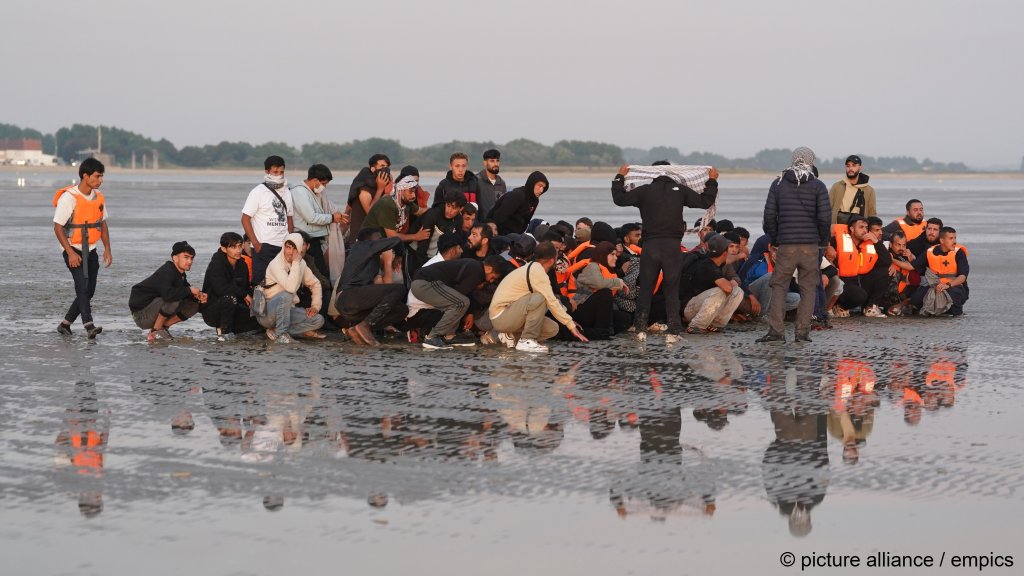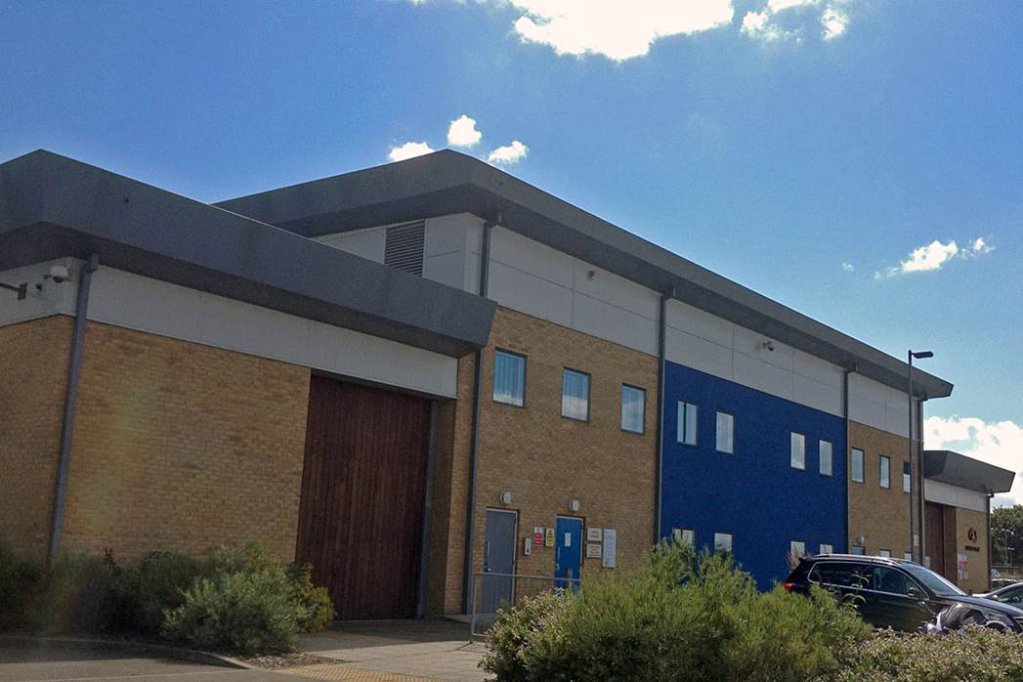British authorities intercepted a boat carrying more than 100 migrants in the Channel on Wednesday. The arrival of the boat’s occupants in Dover has brought the number of those who have crossed from France to the UK in small boats to almost 28,000 (27,881) since the beginning of the year. New policies put in place show no sign of the hoped-for deterrence effect, as yet.
A UK government spokesperson commenting on the arrival of over 100 migrants on one ten-meter boat told the German press agency dpa that it was "pure chance" that the "grossly overcrowded" soft-bottomed boat had survived the crossing with that many people on board and after 15 hours at sea.
The 100 people were some of 325 people who arrived on four different boats in Britain, according to British government data. Warm weather may be partly behind more than 2,000 (2,290) migrants who arrived between August 7 and August 14.
The UK government spokesperson said that loading that many people on one boat showed the "complete disregard people smugglers have for whether people live or die." They added that the British government "will stop at nothing to dismantle the business models of those smuggling gangs and bring them to justice."
Read AlsoUK party leaders urged to address 'hatred' fueling anti-migrant protests
More and more people on board small boats
This is not the first time that around 100 people have been aboard one small vessel. The British government told dpa that three similarly sized groups had been detected since last October, most carrying between 96 and 98 people on board.
In April 2024, a boat carrying 112 people capsized in the sea, resulting in the deaths of five people, including a seven-year-old girl.

The government spokesperson added that the latest numerous arrival "shows the importance of the agreement we have reached with the French authorities to review their maritime enforcement tactics, so that they are able for the first time to intercept boats in shallow waters and prevent taxi boats from parking offshore to collect large numbers of migrants unhindered."
Another part of the UK-French agreement, which entered into force last week, known as the 'one-in-one-out' agreement, does not yet seem to be having the hoped-for deterrence effect. A report in the left-leaning Guardian newspaper this week suggests that those detained under the agreement, in preparation to return them to France, claimed to have no knowledge of the agreement’s existence before they set sail for the UK.
Read AlsoUK: Social media people smugglers to face jail
Eritrean detainee: 'I'm still in a state of shock'
Under the terms of the agreement, the British government can send back those who arrived by small boat from France in return for taking an approved asylum seeker from France to join a family member or because they need protection in the UK.
One man from Eritrea who reportedly spoke to the Guardian by phone after being detained by the Home Office said: "I was so happy to survive the journey across the Channel and to reach land in the UK. Then the Home Office locked me up. I’m still in a state of shock."
The man continued that he and the group he was with, "did not understand what was happening to us when the Home Office moved us from Manston [a former military base in Kent used to house migrants arriving in nearby Dover] where we were processed, straight to this place, which is like a jail."
The man said he and others asked the authorities why some who arrived on the same boat appeared to be being allowed to go free and he and others were being detained, the authorities repeated that "it was because we crossed the Channel illegally."
The man said that he was "frightened" in the detention center as there were other people in there who had "committed crimes in the UK." The man underlined that "we have done nothing wrong apart from trying to find a safe place."
The man told the Guardian that he had been "trafficked and tortured" in Libya, and he feared "if I am sent back to France and the smugglers find me they will kill me."
Read AlsoUK government issues sanctions against people smuggling gangs

Afghan detainee: 'We are afraid of what the Home Office will do to us'
Another man from Afghanistan told the Guardian that he too was afraid in the prison, both of the "dangerous criminals" with whom they were locked up with, and "we are so afraid of what the Home Office will do to us."
The man claimed that the Taliban tried to kill him, which prompted him to flee Afghanistan. He told the Guardian, "I thought I was free when I reached the UK but instead I am in this prison." This man too claimed to know nothing of the one-in-one-out deal when he left France. He added he wasn’t sure if it would prevent people from crossing the Channel.
A spokesperson for the Home Office (Interior Ministry) told dpa that "through international intelligence sharing under our Border Security Command, enhanced enforcement operations in northern France, and tougher legislation in the Border Security, Asylum and Immigration Bill, we are strengthening our ability to identify, disrupt and dismantle the gangs."
However, since the Labour government took power just over a year ago, on July 5, 2024, more than 51,000 migrants have crossed the Channel to the UK.
The Home Office told the Guardian that they expect to send the first group of detainees back to France "within three weeks." This is because the UK refers potential returnees to France within three days of their detention and then the French authorities have 14 days to respond.
Read AlsoFrance: Two migrant deaths reported on Channel coast
Help group worried about potential rise in self-harm or sucicide attempts
According to reporting in the Guardian, the Home Office has been giving the detainees a leaflet which says that once returned to France, the French authorities may offer returnees a financial incentive to return to their home countries. The leaflet also asks detainees to notify the authorities if they are "seriously ill, or a victim of rape, torture, or violence."

Karris Hamilton from the Gatwick Detainees Welfare Group, a group of volunteers who visit detainees and offer support, told the Guardian that her group was "extremely concerned about the wellbeing of the men being detained for the ‘one in, one out’ scheme."
Hamilton added that out of those her group had spoken with so far, they seemed to be "in acute distress" and many claimed to have been "victims of torture, exploited by traffickers on their journeys or victims of modern slavery in Libya."
She added that her group was worried that they might see a "rise in self-harm, suicide attempts and hunger strikes" due to the worry experienced by the detainees.
With dpa and AFP
